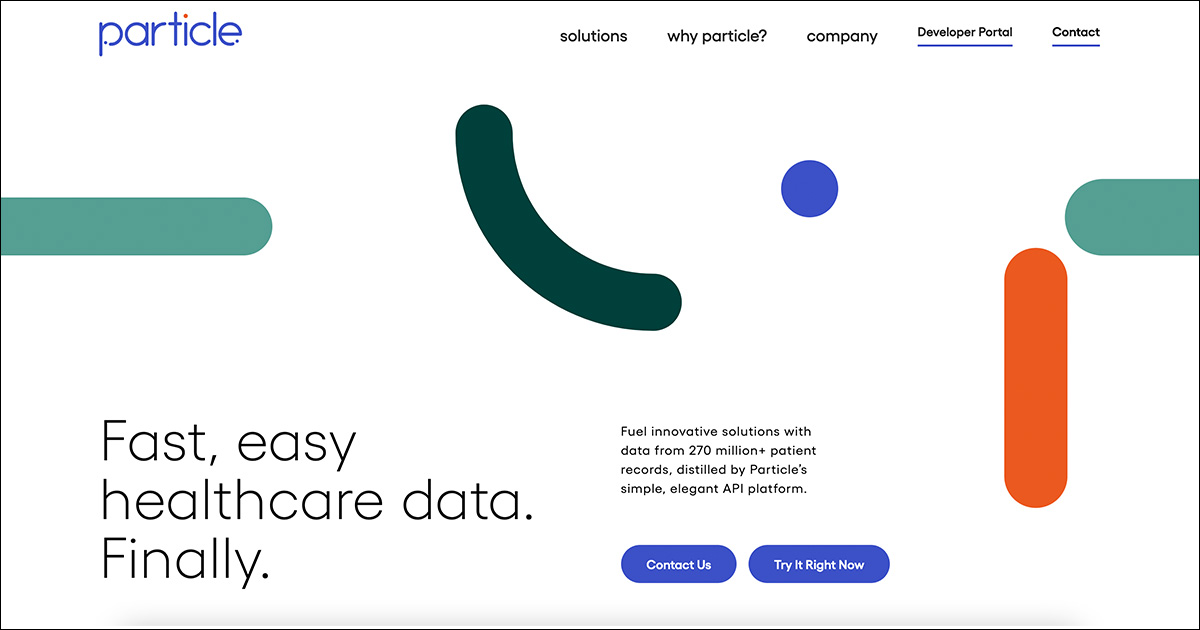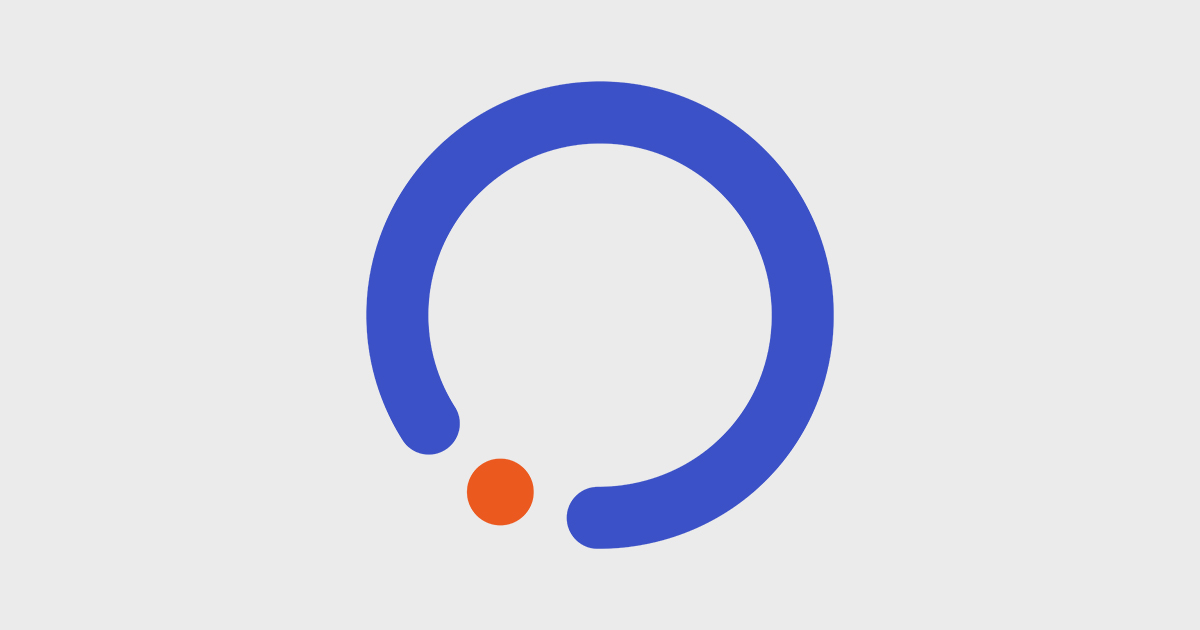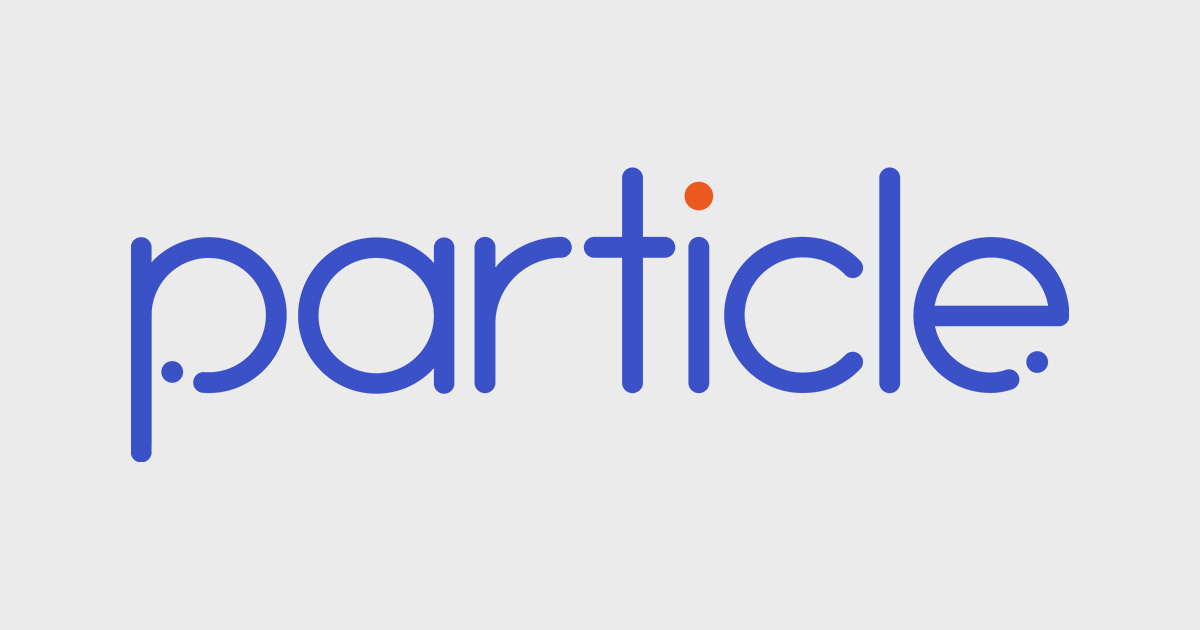Particle Health is a health tech startup fusing the fintech and healthcare worlds to provide an accessible, secure API platform for safe data exchange in the healthcare industry.
Interview With Troy Bannister
Describe your product or service:
“Particle is shaping the new standard for healthcare data exchange with a user-friendly API platform. We create intuitive experiences for developers, build scalable infrastructure product teams love, and collaborate with innovative leaders launching data-driven healthcare solutions.”
Describe your company values and mission:
“Our mission is to enable simple and secure access to actionable healthcare data for digital health innovators
Unofficially? We also intend to #destroythefaxmachine.”
How are you funded? I.e. type of funding, number of funding rounds, total funding amount.
“In early 2020, the team at Particle Health closed a $12 million Series A [round], led by Menlo Ventures.”
How big is your team? Tell us a little about them (I.e. co-founders, freelancers, etc.)
“We have two co-founders and a current team of 37 employees — and growing!”
How did you come up with and validate your startup idea? Tell us the story!
“At last, healthcare data is accessible nationwide. But “accessibility” doesn’t mean much when the data is practically unusable—stored by thousands of disparate hospitals, networks, and other sources in a hodgepodge of standards and formats.
Particle Health’s modern API platform unifies records from over 270 million patients across the United States. We provide digital health solutions with a single, secure access point to the data they need to innovate rapidly and at scale.
Our company started in early 2018 with a big vision to break down data silos. Leveraging the opportunities brought forth by new legislation, Co-founders Troy Bannister and Dan Horbatt built a platform integrated with the largest EMRs in the US. By early 2020, the team at Particle Health closed a $12 million Series A [round], led by Menlo Ventures.
Troy’s story: After spending 15 years in healthcare in multiple capacities: as an EMT, medical student, clinical researcher, and early-stage investor, Troy found a disturbing gap in patient rights and paper processes that digital solutions could fill. Troy is incredibly optimistic about the future, particularly as it relates to legislation and emerging data standards. Past experience: Mount Sinai Health System, Startup Health, IEEE, and graduate of Georgetown University.
Dan’s story: Dan is experienced in building out large distributed systems, cloud architecture, big data platforms, and teams at several innovative companies. He has personally felt the negative impact of the inability to share and access medical records in a frictionless way and is seeking to forever revolutionize health data interoperability. Past experience: Microsoft, Skype, Palantir, Google and graduate of Carnegie Mellon University.”
How did you come up with your startup’s name? Did you have other names you considered?
“It came to us quickly and naturally! We feel the name represents well our role in healthcare interoperability.”
Did you encounter any roadblocks when launching your startup? If so, what were they and what did you do to solve them?
“Interestingly, once the API was built — and proven — we discovered that we still had a lot more work to do. Namely, in translating that data in a meaningful and actionable format for digital startups. Lots of learnings!”
Who is your target market? How did you establish the right market for your startup?
“We did tons of analytical deduction to conclude our target market with the clearest use cases for our API were as following:
PROVIDER SERVICES
This segment includes providers or provider organizations, as well as administrative and clinical tools used to assist providers in the care of patients. This can be further broken down into:
- Providers (Primary care, specialty care),
- Administrative Tools (including telehealth and connectivity solutions)
- Clinical Tools (screening, diagnostics, remote monitoring, and population health)
PHARMACY
This segment includes companies that facilitate reconciliation, adherence, optimization, and supply of pharmaceuticals.
VIRTUAL FIRST (CARE MANAGEMENT & THERAPEUTICS)
This segment includes platforms that facilitate exclusive virtual teletherapy, wellness coaching, or chronic care management.”
How did you acquire your first 100 customers?
“Lots of great press, WoM, and referrals. On top of that, we implement paid media strategy, lots of content generation (see our infamous blog), and publishing thought leadership.”
What are the key customer metrics / unit economics / KPIs you pay attention to to monitor the health of your business?
“ARR, implementation timeline, speed to go-live.”
What’s your favorite startup book and podcast?
“Book: ‘The Hard Things About Hard Things’
Podcast: ‘Masters of Scale’”
What is a song or artist that you listen to for motivation?
“I’ve always been really interested in music. Right now, I’m listening to Greta Van Fleet, which is basically Led Zeppelin reincarnated and a bit more modern.”
Is there a tool, app, or resource that you swear by to help run your startup?
“Slack is such a basic tool now, at any startup, and I cannot imagine not having it. It really changed everything.”
What is something that surprised you about entrepreneurship?
“How important it is to keep going. You just keep going. That’s it.”
How do you achieve work/life balance as a founder?
“You don’t. But you can try! I make it a point to relax on weekends. Sometimes that means I go to a coffee shop to work; sometimes it means I don’t work at all — but it’s important to prioritize your loved ones and yourself.”
What is a strategy you use to stay productive and focused?
“It’s really just a muscle you have to train — I wouldn’t say there are any secret tricks, rather a practice you get better and better at. It’s really really important to train this muscle and get good at staying ‘on.’ This is a mindset game, after all.”
Did you have to develop any habits that helped lead you to success? If so, what are they?
“Be consistent. Consistency in your vision, in your principles, in your mindset. Consistency and holding yourself accountable to being excellent in these categories is fundamental.”
What was your first job and what did it teach you?
“I started a boat cleaning business in high school. I saw my friends working at grocery stores earning less money than me, getting out of work late … I was making good money, in the sun, swimming, bringing my friends to help, and I thought, ‘wow, you can really control your work if you start it?’”
Tell Us Your Startup Story
Are you a startup founder and want to share your entrepreneurial journey withh our readers? Click below to contact us today!
Request an InterviewMore on Particle Health

Founder of Health Tech Startup Particle Health Shares Their Top Insights
Gain valuable entrepreneurial insights from Troy Bannister’s experience founding and growing innovative healthcare tech startup Particle Health.
Read More
Here’s How You Can Support Health Tech Startup Particle Health
We asked Troy Bannister, founder of Particle Health, to share the most impactful ways to support their startup, and this is what they had to say.
Read More
This Founder Is Solving a Pain Point He Identified as an EMT
Read the story of Particle Health, the startup solving an industry-wide pain point identified by the founder during his time as an EMT.
Read More

